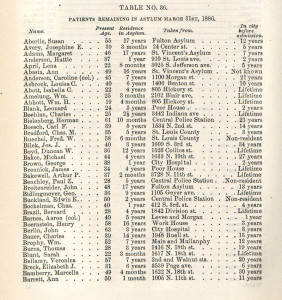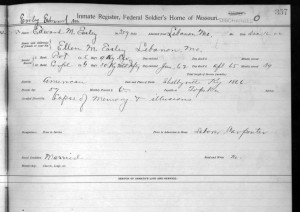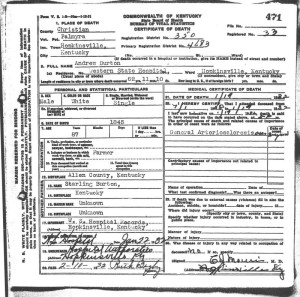Running an insane asylum involved a great deal of administrative work, and it is no wonder that some records were not as meticulous as inspectors and latter-day researchers would have liked.
Dr. Harry Hummer, superintendent of the Canton Asylum for Insane Indians, was often accused of poor-record keeping. However, not all of his records were badly kept; the problem lay in where he chose to put his efforts. A February, 1927 journal voucher lists 30 patients along with small sums spent on their behalf. These sums ranged from a few dollars to fifteen cents, yet Dr. Hummer kept track of them for reimbursement purposes.
Conversely, he spent almost no time updating patient medical records during the asylum’s later years; he left that task to his attendants who often jotted repetitive, meaningless updates that were useless for diagnostic purposes. Perhaps Dr. Hummer put his energy only into those tasks he thought would benefit himself and contribute to the efficiency of the asylum.
Many asylums have not retained all their patient records (or have deliberately destroyed them), so Canton Asylum’s incomplete patient records does not present an unusual situation. One inadvertent benefit to Hummer’s attention to detail in certain areas is that it is at least possible to cull patient names from these types of documents.
By going through vouchers and reports, researchers can fill in gaps that might exist in the records they would prefer to have, or uncover tidbits of information that present a clearer picture of their subject matter. For instance, a payroll list from June 1923 shows that Dr. Hummer’s father, Levi, and his son, Harry Hummer, Jr. were employed at the asylum; additionally, a separate letter to the Indian Office that same month shows that Dr. Hummer’s other son, Francis, acted as an escort for patients coming to the asylum from Taos, New Mexico. It would certainly be interesting to speculate or do further research on the dynamics of this family employment.


